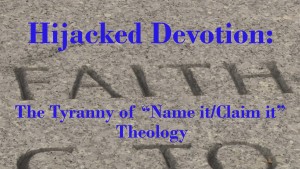Las Filacterias Anchas y los Tefilín Largos: El concepto de Honor y Vergüenza en las Redes Sociales
 Gracias a Lisa Velazquez por traducir este articulo. Puede escucharla a traves de Teshuva.tv los Domingos a las 6pm en el programa radial: Caminando en Obediencia.
Gracias a Lisa Velazquez por traducir este articulo. Puede escucharla a traves de Teshuva.tv los Domingos a las 6pm en el programa radial: Caminando en Obediencia.
Ha sucedido muchas veces a lo largo de los años, pero ayer mientras estaba quemando un arbusto en mi propiedad, estuve pensando y orando al respecto. Lo vi ocurrir de nuevo el otro día. Vi a un maestro siendo cuestionado en línea sobre nada – no fue legítimamente interrogado acerca de algo que estaba enseñando, ni impugnado en algún pecado real en su vida, ni siquiera algo en el contexto de la declaración que hizo. No, mi amigo se sometió a tener que responder por algo que no dijo, ni que cree, por alguien que rutinariamente hace acusaciones y pinta la gente como malos frente a otros. Las palabras fueron puestas en la boca de mi amigo por una razón muy específica – incluso si la persona que solicita ni siquiera era consciente del por qué lo estaba haciendo.
Algo que no es fácilmente evidente para los lectores de la Biblia con la mentalidad occidental es la razón de este verso:
Mateo 23:5-7: 5 Todo lo que hacen, lo hacen para ser vistos por otros; pues ellos hacen sus tefilin anchos y sus tzitziyot largos, 6 les fascinan los lugares de honor en los banquetes y los mejores sitios en las sinagogas, 7 y aman ser saludados con deferencia en las plazas de mercado y ser llamados ‘Rabí.’
Se podría decir, “¡Bueno, Tyler, ellos obviamente, estaban tratando de parecerse más justos! ¿Por qué esto tan difícil entender?”
Sí, por supuesto, pero ¿por qué estaban tratando de parecerse más justos? Porque se sentían como si tenían que hacerlo. La respuesta está en la cultura de honor y vergüenza, algo totalmente extraño para el mundo occidental y, sin embargo evidente para las dos terceras partes del mundo de hoy.
Los fariseos, sumos sacerdotes y escribas estaban viviendo en un mundo donde el honor era todo – mucho más importante que el dinero. Honor en esos días es lo que nos referimos como notoriedad o renombre excepto que en esos días uno podía ser una persona desgraciada y horrenda y todavía obtener alto honor. Pensamos del honor como si perteneciera solo a héroes y personas con gran carácter, pero por otra parte legítimamente podía pertenecer a la persona más astuta, calumniosa, y deshonesta en la ciudad, siempre y cuando fuese deshonesta con las personas adecuadas.
En los días del Mesías, así como en los tiempos bíblicos, el honor era una comodidad limitada – se creía que sólo había tanto honor para todos. Cada pueblo, cada clan, cada país, sólo tenían tanto honor disponible y tenía que ser compartido entre los miembros de un grupo paritario. Usted nacía en el honor de su familia – era alto si su padre era un líder de la comunidad y bajo si su padre era el hombre que huía de la batalla o era un mendigo. Obtener más honor consumió la vida pública de los hombres (y fue la verdadera razón por la que las mujeres se quedaban en casa, para que no fueran oprimidas, siendo protegidas de este juego implacable) – y no podía obtenerse simplemente por ser un buen tipo con integridad; esa es nuestra forma de lograr el honor. Elevar el propio nivel de honor a través del esfuerzo personal sólo podía hacerse a expensas de los demás – a través de victorias militares que te elevarían sobre tus compañeros, ganando competiciones atléticas, actuando como un benefactor de la comunidad (usando su dinero para construir edificios o haciendo obras públicas, al igual que el patrocinio de un artesano) o – y esto era la manera más fácil – robarle el honor a los demás a través de retos públicos con la esperanza de elevarse a sí mismo mientras se humillaba al otro individuo y su familia.
Vimos dos tipos de gente haciéndole preguntas a Yeshúa (Jesús) en los evangelios – Los primeros fueron sus discípulos que lo respetaban. Ellos hacían preguntas en privado. El otro grupo de preguntas era en público, y siempre con el propósito de “atraparlo” o “desafiarlo” (incluso algunos “elogios” podían ser desafíos diseñados para avergonzar a la otra persona). ¿Alguna vez ha notado cómo algunos líderes se lamentaban sobre sus grandes obras?
¡Miren, pues, todo el mundo se ha ido tras Él! (Parafraseando Juan 12:19) (el verdadero significado era: “Todo el mundo ha dejado de seguirnos a nosotros”)
A pesar de que Yeshúa no estaba jugando el juego de honor/vergüenza agresiva (no comenzaba a esos desafíos, pero seguro que acababa con ellos), sus enemigos lo eran. Ellos fueron avergonzados en cada ocasión y notemos el lenguaje como, “Y nadie le hacía más preguntas después de eso.” ¿Por qué no? Con cada milagro ejecutado se levantaba el honor de Yeshúa y lo mismo con cada pregunta bien contestada– pero eso es sólo la mitad del caso, cada gran logro estaba tomando el honor lejos de los líderes que lo desafiaban, porque así era la cultura como operaba. Estaban perdiendo su reputación mientras que él la ganaba. Cuando la perdieron a través de un desafío que fue su propia culpa, Yeshúa les advirtió a todos a lo largo de las bienaventuranzas que Él quería revertir el sistema de honor y vergüenza – los avergonzados serían honrados y los honrados serían avergonzados. El explicó en términos generales un sistema en el que los hombres no tenían que tratar de forma agresiva robarle el honor a otros, donde el honor venia de adentro – sin embargo, si iban a desafiarle, perderían porque él conocía sus corazones y Él tenía la sabiduría para vencer sus retos sin recurrir a sus métodos.
Yeshúa vino a destruir el robo de honor y la brutalidad del primer siglo de la cultura grecorromana entre Su pueblo (entre otras razones, por supuesto, vino lograr muchas cosas y sin embargo va a lograr más de las Escrituras cuando regrese). Las personas que están bajo convenio y son leales a Dios tienen honor en el Reino – pero la gente había perdido de vista lo que significaba tener esa clase de honor, debido a la corrupción del sacerdocio ilegítimo de los Saduceos. Yeshúa, en la cruz, restauró el honor de nuestra relación con el Padre, el cual nos da un alto nivel de honor como hijos del Altísimo. El honor que tenemos a través de nuestra relación con el Padre a través de Yeshúa no es poca cosa – es la forma más importante de honor que podemos tener en esta vida. No necesitamos ir en busca de más – sólo tenemos que vivir de acuerdo con lo que se nos ha dado, hacer nuestro trabajo y permitirle al REY quien decida quien reciba cualquier clase de prestigio. Los Fariseos, Escribas y Sacerdotes principales tenían un alto nivel de honor por habérseles sido dado una relación de pacto y los mandamientos en orden para diferenciarse del mundo – que es un gran honor. Pero ¿qué hicieron? ¿Vivieron apreciando ese enorme honor? No, ellos hicieron sus filacterias (tefillim) más anchas y sus borlas (tzitziot) – más largos con el fin lucir más justos de los que les rodeaban. Ellos deseaban más el prestigio del mundo, del tipo que Yeshúa estaba ganando simplemente porque Él halló favor ante los hombres y estaba haciendo cosas que maravillaba al mundo – pero a diferencia de los hombres que conspiraron contra él, Yeshúa nunca utilizó métodos mundanos para ganar prestigio.
Así llegamos a los devoradores de los medios sociales mundiales, y hay gente por ahí que están buscando cualquier cosa insignificante y de menos importancia para subir peldaños no viviendo en honor que se les ha dado, pero a través de socavar los demás y derribarlos con el fin de hacerse más honorables – no más a los ojos de nuestro rey, pero más a los ojos de su pueblo. Es una actividad mundana – una que Yeshúa rechazó cuando se negó a hacer una señal para quienes se lo exigieron a él.
Los hombres de los días de Yeshúa, vivían en una sociedad donde todo el mundo estaba observando las fiestas, los días de reposo, el diezmo a los levitas y comían kosher, sintieron que tenían que hacer algo visible para elevarse por encima de sus paritarios. Estuvieron dispuestos a comportarse de manera abominable hacia su prójimo con el fin de llegarse a ser mayor a los ojos del público. No lo pensaron dos veces, nunca se preguntaron si esto era o no una acción justa – “Si voy a ser más a los ojos de las personas, entonces debo ser menor” Esto está en marcado contraste con la respuesta de Juan del Bautista para el horror de su discípulo que la gente seguía a Yeshúa, en lugar de su maestro: “Él tiene que ser el importante, y yo dejar de serlo.” (Juan 3:30) Juan abrazó el estado honor dado a él por Dios, y no trató de aferrarse a lo que se le estaba dando a Yeshúa.
No podemos amar esa clase de honor, no si se hace a expensas de otra persona. Por desgracia, he encontrado que es difícil navegar las redes sociales y congregaciones incluso locales por el temor de acreditar a otro maestro con algo que se ha aprendido (en lugar de tomar el crédito para uno mismo) sólo para ser sometida a una larga lista de cosas que no se están cumpliendo cabalmente en (y esta lista con frecuencia no presenta pecados actuales, sólo cosas que la persona no le gusta) y tener que escuchar a alguien avergonzar públicamente a otra. Vemos el mismo fenómeno en las redes sociales, donde una persona comienza a golpear tal o cual maestro detrás de su espalda, siempre con el resultado neto de lograr ser más justos para hacer sonar la alarma, o simplemente buscar ser más justos porque obviamente es mejor que este maestro o líder que es menos exigente y más pecaminoso y por lo tanto sospecha ser digno de ser socavado y avergonzado públicamente – pero por lo general el pecado no tiene nada que ver con ello. Los celos son un potente instigador del pecado, una influencia cegadora que a menudo se hace pasar por la justicia. El famoso “celo santo” que muchos suelen defender.
Lo más común que veo, sin embargo, es cuando un maestro trae una enseñanza o postea comentarios en los medios de comunicación sociales y luego se somete a las siguientes técnicas de vergüenza pública por parte de aquellos que tienen celos y quieren que se perciba su mayor nivel de honor que dicen tener.
“Bueno, puedes hacerse la vista gorda al pecado, si está bien con usted, ¡pero me pondré del lado de Yah!”
(Que uno se acostumbra, incluso cuando no hay pecado en el horizonte, pero el atacante quiere elevar algo que odia al nivel de pecado y quiere poner a la otra persona en la defensa – tener que defenderse de algo que no han dicho ni cree. es sólo una forma de alargar sus tzitziyot, sin tener que realizar cualquier otra cosa. Es una forma de auto-exaltación que es fácil y sin sentido, que no requiere la justicia real).
“¿Quieres decir que está bien pecar?”
(Por lo general, la persona está equiparando la merced de ser paciente con los pecados ignorantes a otros con su aprobación al pecado de rebeldía – algo que la Palabra no apoya, a menos que usted suponga que fue escrito en su lenguaje)
“Bueno, puedes seguir escuchando a los hombres… ¡yo voy a escuchar a Dios!”
(Tal vez piensan que suene humilde, pero seguro que no es humilde.)
“¿Estás diciendo que …” o “supongo que acabas de pensar que …”
(Cuando no se puede interceptar una persona que realmente es un hereje, poniendo palabras en su boca (también conocido como mentir a través de acusaciones públicas) es una forma muy efectiva para parecerse al gran salvador de la fe que lucha contra el establecimiento del mal)
“Estás obviamente motivado por…”
(Una vez más, esto es en realidad una forma abierta de mentira)
¿Lo ves? ¿Ves cómo cada frase en realidad implica presunción y muchas veces mentira? ¿Ves cómo se pone a alguien a la defensiva, teniendo que responder a cargos que pueden ser claramente falsos?
¿Qué pasa si una persona no es un pensador rápido, o un buen orador o escritor? ¿Y si su corazón no contiene suficiente sarcasmo o la astucia para defenderse de los cargos suficientes inteligentemente ante la audiencia con la cual el acusador está jugando?
No es algo similar, así, el cargo anónimo que pinta el “atalaya en la pared” como un héroe por señalar lo terrible y peligroso de la gente sin nombre, sin rostro que él o ella está condenando públicamente, con descripciones detalladas de su secreto, motivaciones y supuestos delitos. “Oh, gran héroe de la fe de pie ante tal herejía, ¡bendecido eres!” Por supuesto, porque los cargos están en contra de personas sin nombre, sin rostro, ¿cuál es el punto? El punto es el alargamiento de los tzitziyot y el ensanchamiento de las filacterias. El punto es elevar ese nivel honor a costa de los demás. El punto se ve bien, que siempre ha sido más fácil que ser realmente bueno.
¿Alguna vez se preguntó lo grande del problema sobre el fruto del Espíritu? ¿Por qué fue la promoción del amor, alegría, paz, paciencia, benignidad, bondad, fidelidad, mansedumbre y dominio de sí mismo es un gran problema en parte? En pocas palabras – debido a la madurez espiritual en ese fruto significaba que una persona no podía y no iba a salir a tratar de ganar honor a expensas de los demás. Ellos no serían como las personas que desafiaron, probado y comprobado para atrapar a Yeshúa. No serían como los hombres que mataron a los profetas.
Cuando hacemos cosas a los demás, es como si estuviéramos construyendo las tumbas de los profetas – demostrando que somos los hijos de los que los asesinaron. Sí, veo a gente con filacterias tan amplias en las redes sociales que ya no se pueden ver las caras de las personas a las que están avergonzando, y ciertamente no pueden acceder a la viga en su propio ojo. Sus tzitzit virtuales son tan largos que la gente hasta tropieza con ellos, ya que los arrastran por la tierra – y no sólo son aquellos tzitzit que se arrastran por la tierra, sino también la reputación de nuestro Rey junto con ellos.
Mi amigo me dijo una vez después de uno de estos incidentes sin sentido – que es un excelente líder y maestro en línea – “gente como estos son la razón por la que odio hacer comentarios en Facebook.” ¿Cómo puede el liderazgo liderar y los maestros enseñar o incluso ser personas reales alrededor de otros si los asesinos de honor están esperando en cada esquina – en busca de un acceso directo a la escalera del honor invisible y están dispuestos a subir a través de avergonzar a Dios con el comportamiento que tiene toda ilusión de justicia, pero sin sustancia real y sin amor o madurez real? No me impresiono por los que me dicen que estas personas son “agradable para ellos” o “gente buena si los conoce” – también los publicanos y pecadores eran buenos con sus amigos. Se supone que debemos hacerlo mejor y demos ejemplo.
Así que si alguna vez se pregunta por qué líderes y maestros parecen estar distantes y no interactúan en las redes sociales, es debido a las personas que prefieren robar honor que ganarlo o vivir con honor. Esta clase de gente es agotadora, y por desgracia, están operando con impunidad en lo abierto y, a veces incluso una gran audiencia que los anima a hacer más.


